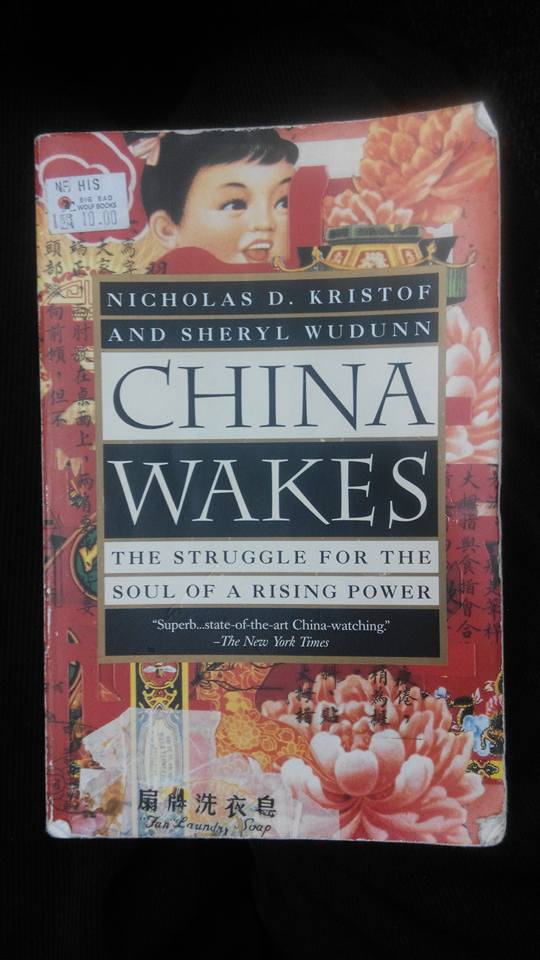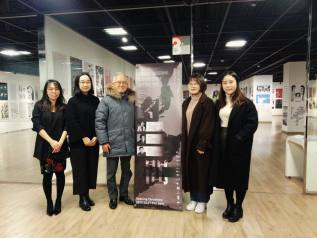
Penulis (Author) : Nicholas D. Kristof, Sheryl Wudunn
Genre: Journalist, History
Tarikh Tamat (Date Finished) : 13 March 2017
Rating: 3.5 / 5
“China is a sleeping giant. Let her sleep, for when she wakes up she will move the world. – Napoleon Bonaparte
There’s something interesting reading old books. Especially books that talk about ideologies, and the realities that happened.
This book won Pulitzer’s Prize for Journalism. It was published in 1994 so the stories are not new.
However, it does not mean the occurrences and the contents are outdated.
Far from that, they played central roles in shaping and forming the China that we know today.
The important events, and figures stated in this book are as follows, as far as I can remember:-
1. Tienanmen Uprising
2. Mao Zedong
3. Zhou Enlai
4. Arts and culture boom
5. Single child policy.
6. Taiwan, Hong Kong.
7. Cultural Revolution
8. Confucius’ influence
—
To be honest, journalists really are (one of) the best story-teller They can really get your attention from the first page. Talking about provocative and sensational story first and foremost, and continue on with series of enthralling encounters, suspense interviews, nostalgic historical stories, to gripping events that keep me on my toes.
Every chapter touched on different aspects of China; from the Tienanmen Uprising, to the system of Chinese society and communities, to the one child policy, and up till the influence of capitalism and democracy that crept in slowly but surely into China.
The authors first served me with the story of the student movement in one chapter, and then about the ancestral home in the next chapter, and then move on to the one child policy and the horrific effects of it while mentioning the few positives in it. Then, the authors moved to talk about the Olympics, and when I thought i have learnt much about China, they exposed the story of human trafficking and slavery. And then, also to the tragedy of the failure of one ideologies to another to really keep a hold on the people China. All that with additional spices of espionage-style journalism; as in trying to break free of government’s surveillance in doing their interviews and reporting.
Indeed, there are traces of ‘Western Superiority ‘ in a sense in their writing. Somehow, I can always sense that feeling in the writing, even though they never admitted it explicitly. And personally, I feel both of them are very opinionated people, like most (if not all) journalists.
However, both of them do admit that the negative stories and tragedies are not everything about China. The economic boom, higher standard of living, better national growth, life expectancy and increasing quality of life were and persists in China. Of course, one can never shun the negatives, for they are many and most of the time, bloody.
All in all, it has been a fascinating read. I took quite a long time reading it, but I feel it is worth it. Though, I should admit, the more I read about China, the more I don’t know about it.
It is like.. Nessie. Because everyone knows what it is, but no one can figure out, truly, and with utmost certainty what it is all about.
And the distant past is important. There is no present, because each present is too short a time. What there will always be is the past. Be it infinite past, distant past, a recent past or infinitesimal past (I’m talking from the perspective of human being, who lives on a linear timeline).
Advertisements Share this:

![Death Threads (Southern Sewing Circle Mystery Book 2) by [Casey, Elizabeth Lynn]](/ai/026/278/26278.jpg)



